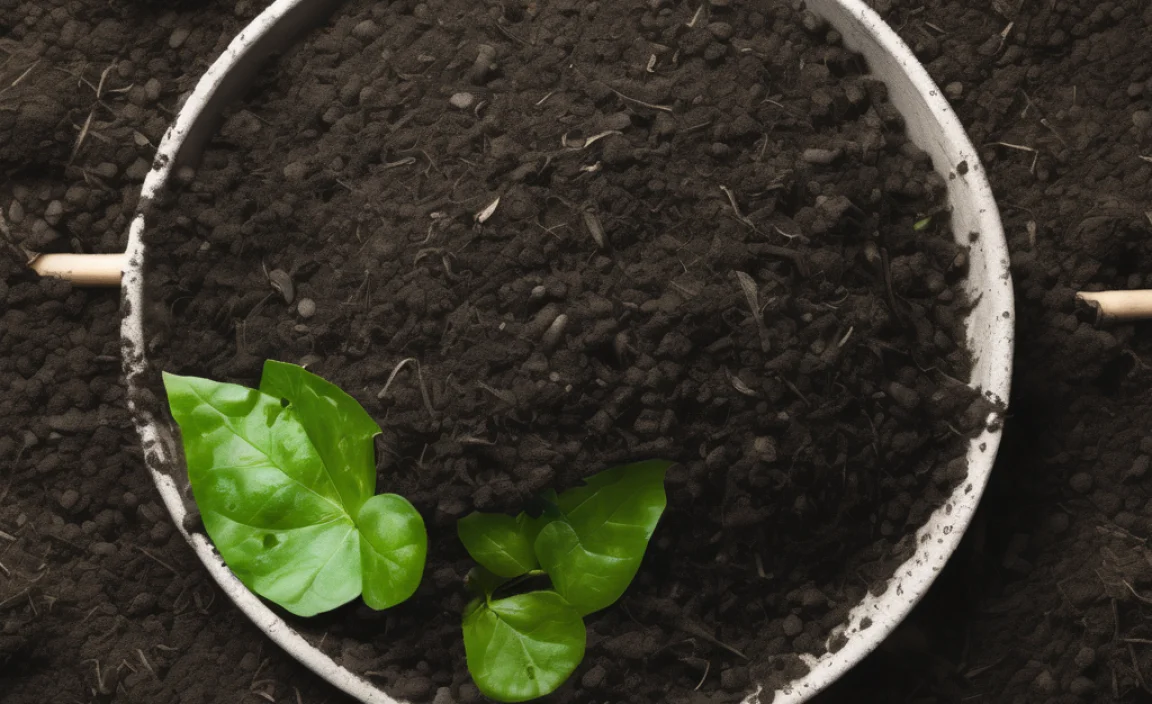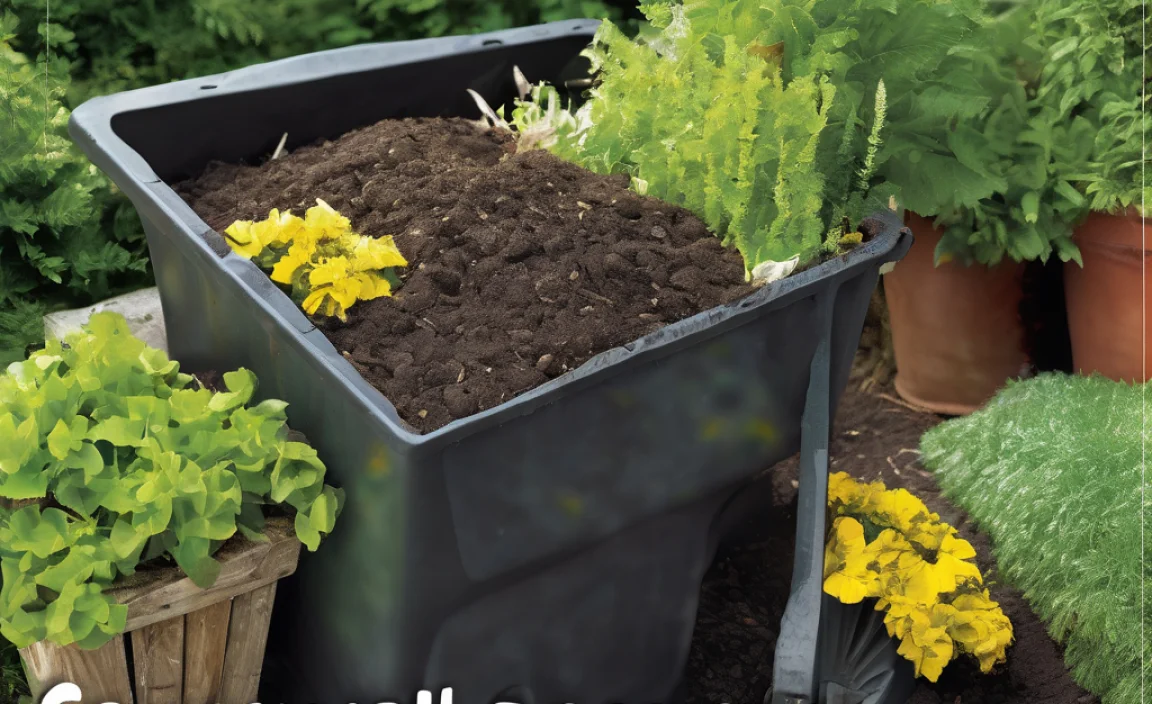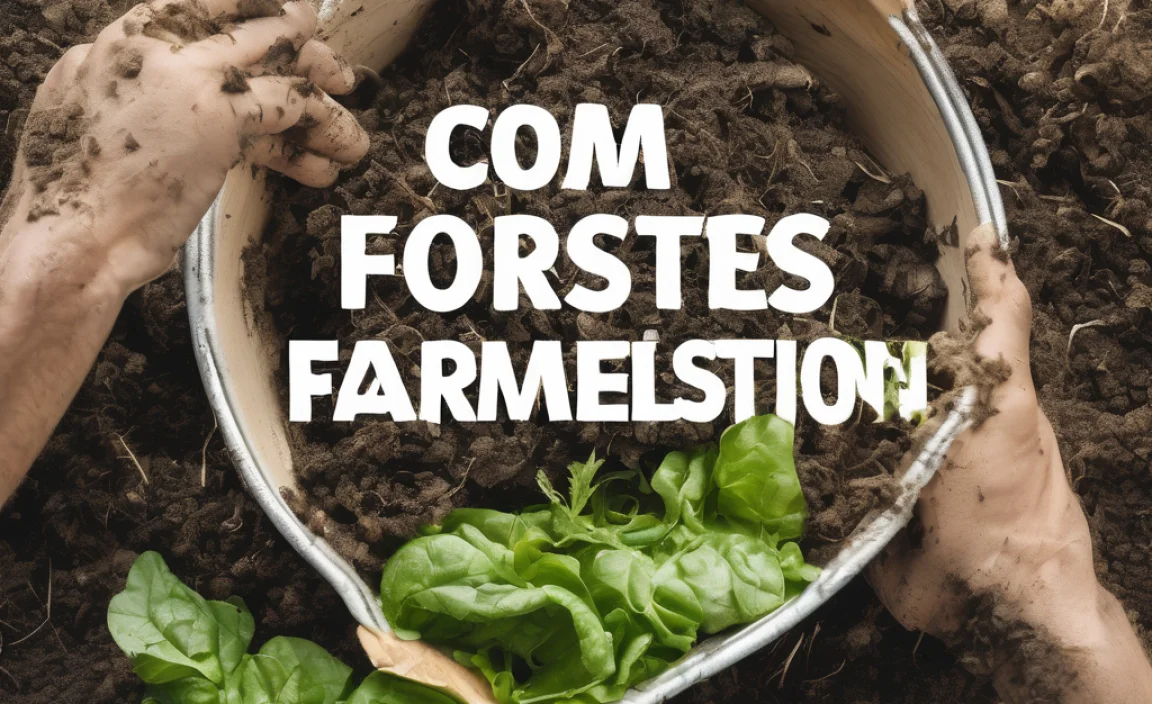Have you ever heard of trash turning into treasure? With vermicomposting, food scraps and waste can become rich soil for plants. It might sound like magic, but worms do all the hard work! They munch away at the waste, turning it into nutritious compost. Kids and adults can learn how to do this through vermicomposting training. Curious? Read on to discover more!
Key Takeaways
- Vermicomposting training teaches how worms recycle waste.
- Worms create rich, nutritious compost for plants.
- Great for home gardens and reducing landfill waste.
- Engages kids with hands-on environmental learning.
- Training helps set up your vermicomposting system.
Vermicomposting Training Basics
Vermicomposting training helps you learn the basics of worm farming. It’s like having tiny helpers in your garden. Worms eat things like fruit peels and vegetable scraps. In return, they produce compost called “vermicast.” This compost is full of nutrients that plants love. With training, you will know how to care for your worms and keep them happy. You’ll learn what worms can eat and what they should avoid. Worms don’t like spicy foods, meat, or dairy.
- Learn about worm types like red wigglers.
- Understand what worms can and cannot eat.
- Set up a bin for your worms.
- Keep the bin dark and moist.
- Harvest the compost when ready.
- Use compost in gardens and pots.
- Reduce waste in landfills.
Vermicomposting training also shows how to maintain the right bin conditions. Worms need a cozy home to work well. Temperature, moisture, and darkness matter. Training programs often include hands-on activities. These help you understand how to balance the bin’s ecosystem. It’s fun and educational for all ages.
Fun Fact or Stats : Worms can eat about half their weight in food each day!
Red Wigglers: The Best Worms
Why are red wigglers the best worms for vermicomposting? They thrive in small spaces like bins. They love munching on kitchen scraps, making them perfect for recycling waste. Red wigglers are hardy and reproduce quickly. This means they can handle more food waste over time. With vermicomposting training, you’ll learn all about these superstar worms. How do they differ from regular garden worms? Red wigglers stay closer to the surface and don’t burrow deep. This makes them ideal for compost bins!
Setting Up Your Worm Bin
Ready to set up your worm bin? First, choose the right container. Your bin should be opaque to keep it dark inside. Drill small holes for airflow. Next, prepare bedding with damp shredded newspaper or coconut coir. Add your worms and start feeding them kitchen scraps. Keep the bin moist, but not too wet. Vermicomposting training guides you on maintaining this balance. Wondering how many worms to start with? A pound of worms is a good start for most bins. This equals about 1,000 worms!
Feeding Your Worms
Feeding your worms is easy and fun! Worms eat almost anything organic. They especially love fruits and veggie scraps. Remember to cut food into small pieces. This helps worms digest it faster. Avoid meat, dairy, greasy foods, and spicy items. These can harm your worms. Vermicomposting training explains how often to feed. How much should you feed them? Start with a small amount and increase gradually. If food is left uneaten, reduce portions. Worms can be picky eaters too!
Benefits Of Vermicomposting
Why should you start vermicomposting? It offers many benefits for you and the planet. First, it reduces waste sent to landfills. Food scraps turn into valuable compost instead of creating methane gas in dumps. Second, vermicompost enriches your garden soil. Plants grow healthier and stronger with nutrient-rich compost. Third, it’s a fun learning experience for families. Kids love watching worms work their magic. Vermicomposting training provides all these insights and more. Lastly, it saves money on fertilizers!
- Reduces household waste.
- Produces valuable plant nutrients.
- Cost-effective gardening solution.
- Teaches kids about sustainability.
- Improves soil health.
- Creates a family-friendly project.
- Encourages eco-friendly habits.
With vermicomposting, you join an eco-friendly community. More people are turning to sustainable practices. It’s a small step with big impact. Imagine if everyone did this! The world would waste less and grow more. Worms play a key role in this green movement. They work day and night, unseen but effective. They are true recycling heroes!
Fun Fact or Stats : Just one pound of worms can eat up to half a pound of food scraps daily!
Reducing Waste at Home
Did you know that nearly 30% of what we throw away is food waste? By vermicomposting, you can cut down on this waste. Imagine turning banana peels into soil for your garden. It’s like magic! With vermicomposting training, you learn easy steps to reduce waste. Set up a compost bin in your kitchen or backyard. It helps you recycle food scraps daily. In no time, you’ll notice a big difference in your trash output. This is a win for your home and the planet!
Improving Soil Health
Healthy soil means healthy plants! Vermicompost enriched soil is full of nutrients. Plants grow better, become stronger, and resist pests. Adding vermicompost to your garden can transform it. Want to see your plants flourish? With vermicomposting training, discover how to enrich your soil. Worm castings, the compost worms produce, are like superfood for plants. They hold moisture well, reducing the need to water often. Who wouldn’t love that?
Eco-Friendly Lifestyle
Starting vermicomposting is embracing an eco-friendly lifestyle. It’s a simple way to make a big impact. By recycling food waste, you help save the planet. Vermicomposting training teaches you how to care for our Earth. It’s a fun family project that promotes sustainable habits. Why not challenge your friends to join too? Together, you can create a greener future. It all starts with a little worm and some kitchen scraps. Isn’t that inspiring?
Materials Needed For Vermicomposting
Before you start vermicomposting, gather the right materials. Start with a bin or container. It should be dark and have air holes. Add bedding like shredded paper or coconut coir. Next, buy some red wiggler worms. These are the best for composting. Collect food scraps from your kitchen. Keep them veggie and fruit based. Avoid dairy and meat products, as they aren’t worm-friendly. A moisture meter can help keep the bin just right.
- Dark bin with air holes.
- Shredded paper or coconut coir bedding.
- Red wiggler worms.
- Veggie and fruit scraps.
- Moisture meter.
- A small trowel for mixing.
- A spray bottle for moisture.
Once you have your materials, setting up is easy. Place the bedding in the bin and dampen it slightly. Add the worms, then some food scraps. Cover the bin to keep it dark. Monitor the moisture and add food regularly. With proper care, your worms will thrive. They’ll produce rich compost in a few months. It’s exciting to see your waste transform into something useful.
Fun Fact or Stats : Worms can lay eggs every 7–10 days, growing your worm family fast!
Choosing The Right Worms
Choosing the right worms is key for successful vermicomposting. Red wigglers are the top choice. Why? They thrive in the top layers of compost bins. They process waste quickly and reproduce fast. With vermicomposting training, you’ll know where to buy healthy worms. Local garden centers or online sites often have them. A pound of red wigglers is a good start. They’ll multiply and handle more waste in no time!
Preparing The Bedding
Preparing the right bedding is important for your worms. Start with shredded newspaper or coconut coir. These create a cozy, moist environment. Bedding should be damp but not soaking. Think of a wrung-out sponge. Vermicomposting training covers bedding preparation in detail. Did you know worms breathe through their skin? This is why keeping the bedding just right is crucial. Happy worms mean better compost!
Maintaining Moisture Levels
Maintaining the correct moisture level keeps your worms happy. Use a spray bottle to mist the bedding. Check it regularly. Too much water can drown your worms. Too little makes them dry out. Vermicomposting training teaches you to balance this. A simple moisture meter can help. It’s like a fun science experiment in your home. How does water affect worm activity? It’s amazing how nature works!
Challenges In Vermicomposting
Like any project, vermicomposting has challenges. But don’t worry! With proper vermicomposting training, these challenges are easy to tackle. One common issue is the smell. If your bin smells bad, add more bedding. Another challenge is pests. Keep your bin clean to avoid them. Sometimes worms try to escape. This often means they’re unhappy with conditions. Adjusting moisture or food can fix this.
- Odor control with extra bedding.
- Keep pests away with cleanliness.
- Adjust moisture to keep worms in.
- Feed worms just the right amount.
- Avoid overloading the bin with food.
- Monitor temperature in extreme weather.
- Ask for help if needed.
Facing challenges is part of the learning process. Don’t give up! Once you understand how to manage them, vermicomposting becomes easy. With experience, you’ll know what works best for your worms. Plus, overcoming challenges makes you a better gardener. It’s a rewarding journey for the whole family. You become a worm expert!
Fun Fact or Stats : Most vermicomposting issues can be solved with simple adjustments.
Managing Bin Odors
Ever wonder why your worm bin might smell? It usually means something’s off. Too much food or too little bedding can cause smells. Add more bedding to absorb excess moisture. Proper air holes help too. Vermicomposting training explains how to keep your bin smell-free. Imagine a bin that’s always fresh and clean. It’s possible with a few simple tricks. Regular monitoring helps catch problems early.
Controlling Pests
Pests can be tricky but manageable. Flies and other bugs might visit your bin. To control them, cover food scraps with bedding. Keep the bin lid tight. Clean the area around your bin regularly. Vermicomposting training shows how to keep pests at bay. Nothing beats the satisfaction of a pest-free bin. It’s like having your own mini ecosystem. Curious how nature finds its balance?
Preventing Worm Escapes
Why would worms try to escape? It means they aren’t happy. Check if the bin is too wet or too dry. Make sure the food isn’t going bad. Vermicomposting training teaches how to keep your worms content. It’s important to keep conditions just right. Imagine a bin where worms seem to dance with joy. It’s all about balance. Adjusting a few conditions can make a big difference.
Conclusion
Vermicomposting training opens up a world of eco-friendly possibilities. You learn to turn food scraps into valuable compost. It benefits your garden and reduces waste. Plus, it’s a fun learning experience for everyone. Embrace this green journey and become a recycling champion!
FAQs
Question: What is vermicomposting training?
Answer: Vermicomposting training teaches how to recycle waste with worms. You learn to set up and maintain a worm bin. It covers feeding, bin conditions, and compost harvesting. It’s perfect for beginners!
Question: Which worms are best for composting?
Answer: Red wigglers are the best for composting. They thrive in compost bins and eat food scraps quickly. Vermicomposting training introduces you to these hardworking worms.
Question: How can vermicomposting reduce waste?
Answer: Vermicomposting turns food scraps into compost. This means less waste goes to landfills. Training shows how to recycle effectively, minimizing trash output. It’s a great way to help the planet!
Question: What materials are needed for vermicomposting?
Answer: You need a dark bin, bedding, and red wigglers. Also, add fruit and veggie scraps. A moisture meter helps maintain proper conditions. Vermicomposting training outlines all necessary materials.
Question: How often should I feed my worms?
Answer: Feed your worms small amounts regularly. Start with twice a week. Adjust based on how quickly they eat. Vermicomposting training covers feeding schedules in detail.
Question: What should I do if my bin smells?
Answer: If your bin smells, add more bedding. Ensure proper airflow and avoid overfeeding. Vermicomposting training helps you troubleshoot and fix odor issues easily.



